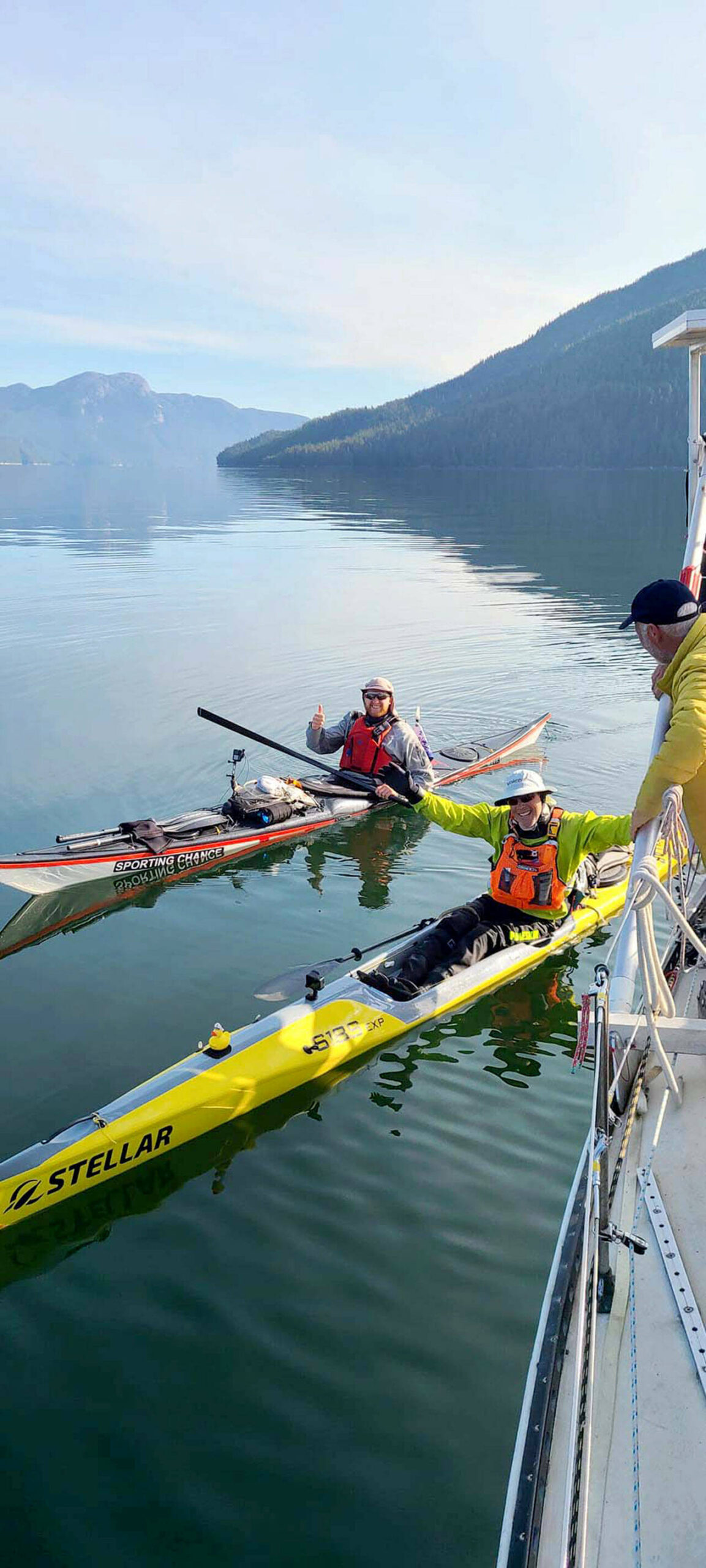KETCHIKAN, Alaska — The last of the active racers in the annual Race to Alaska arrived in Ketchikan on Tuesday, marking the end of the race.
Solo kayak teams Sporting Chance and Bella Bella and Beyond were the last two racers to arrive, making them the 17th and 18th arrivals, respectively. The race officially ends July 1, but all remaining teams have dropped out.
Thirty-nine teams left Port Townsend on June 5, but most of them dropped out of the race before reaching the finish line thanks to boat damage or any number of problems that can occur on a 750-mile sea journey in the Northern Pacific.
The first to drop out was a wing foil board that didn’t have enough wind to cross the Strait of Juan de Fuca to reach the staging point in Victoria, according to Northwest Maritime Center in Port Townsend, which organizes the race.
The monohulled sailboat team We Brake for Whales won the $10,000 prize for first place on June 14, making Captain Jeanne Goussev the race’s first two-time winner. Goussev won the 2017 race with a different team.
The second-place team — the sailing catamaran Team Budgie Smugglers — won themselves a set of engraved steak knives, but that’s the last of the prizes that were awarded.
“We started Race to Alaska with a proving ground that didn’t prove anything,” said Jesse Wiegel, race boss.
The proving ground is the first leg of the race where teams have 36 hours to reach Victoria from Port Townsend. This year the weather was calm and sunny with light winds.
“It was tame, it was calm, it didn’t do its job,” Wiegel said.
There was a deep sense of camaraderie among teams this year, Wiegel said. That is true most years but this year especially, he said, particularly with the human-powered teams, which often stick together. Tuesday’s final finishers had been together for most of the race.
“Scott (MacDonald) and Stuart (Sugden), they have been paddling together since Day 3,” Wiegel said. “They didn’t intend to do it that way. They didn’t plan it that way.”
Those two teams had been accompanied for much of the race by this year’s only stand-up paddleboard team, SUP N IRISH, which dropped out of the race shortly after leaving the checkpoint in Bella Bella, British Columbia.
The team that placed third — Team Pestou, the one-man team of Eric Pesty, set a race record for the fastest solo time with seven days, 22 hours and 45 minutes. Ken Dean of Team Wave Forager came in 11th but set the record for the first solo-rower to complete the race.
Wiegel noted there’s a difference between paddling — what kayakers do — and rowing, making Dean “the first solo-er to get to Alaska backward, facing south.”
The two-person Team Solveig, which came in 13th on a monohulled sailboat, became the first team to finish the race twice as the same team, same boat and same crew, Wiegel said.
“They were way better at it; they beat their 2019 time by a day,” Wiegel said.
There will be a chance to meet this year’s and past racers at the annual Wooden Boat Festival in Port Townsend in September, also hosted by the Northwest Maritime Center. A “blazer party” — a celebration of the Race to Alaska — is scheduled for the evening of Sept. 8, Wiegel said, and that’s when the organizers will make an announcement about applications for next year’s race.
R2AK’s organizers will continue to update the race’s social media pages, Wiegel said, with additional stories about racers and updates on next year’s race.
“R2AK is never really over,” Wiegel said. “It’s either starting in someone’s backyard or happening somewhere.”
________
Reporter Peter Segall can be reached at peter.segall@peninsuladailynews.com.

